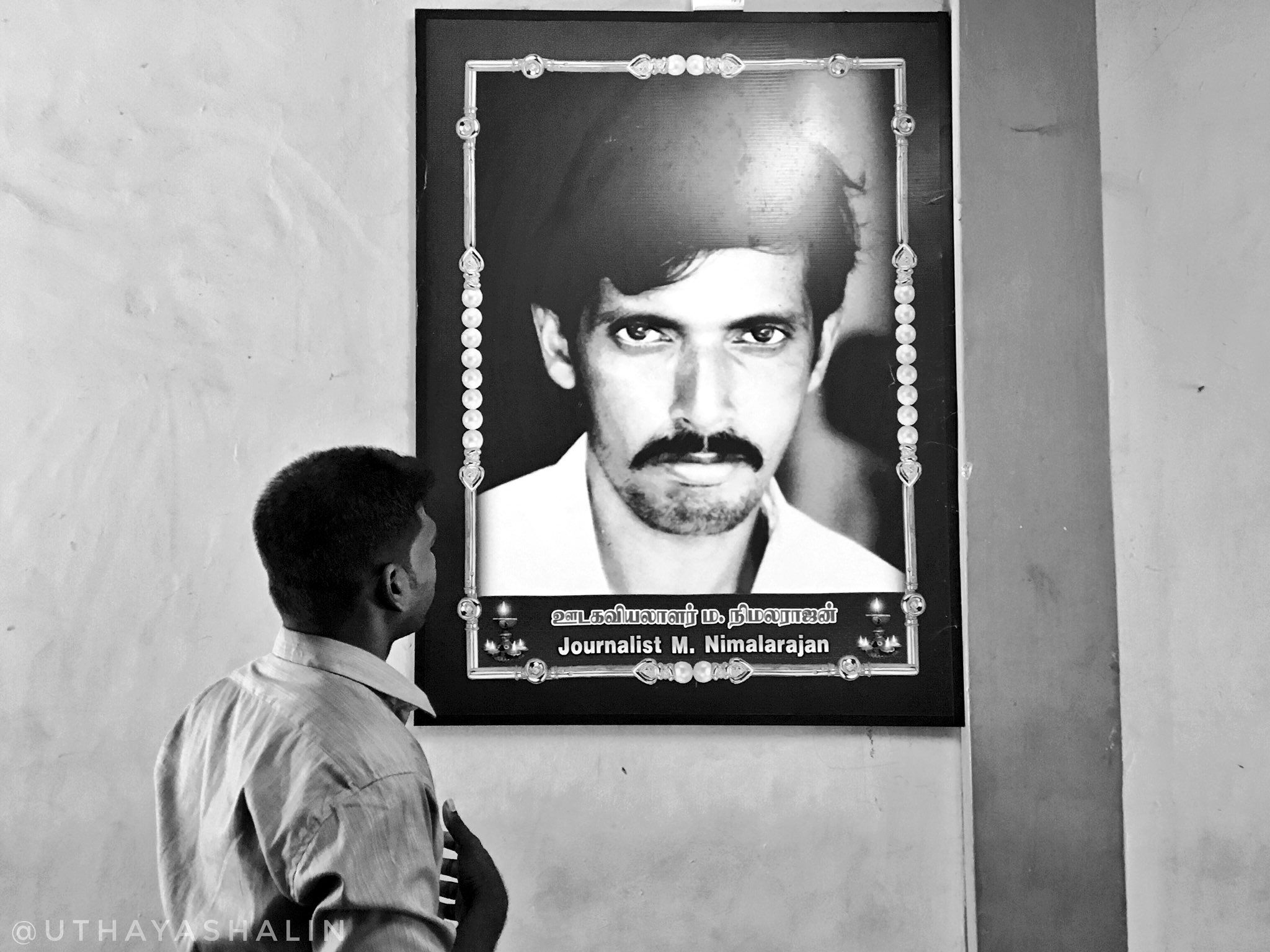
A long and hard twenty-two years have passed since Mylvaganam Nimalarajan was murdered in his Jaffna home. His killers operated in plain sight. Whilst the district was locked under a Sri Lankan military curfew, the assassins drove through several army checkpoints and into the heart of a High Security Zone where Nimalarajan’s house was located. As the journalist sat at his desk working on yet another story for the BBC, they fired shots through the window, tossed a grenade into his home and repeatedly stabbed his father. Nimalarajan was left to die and the murderers drove away as swiftly as they had arrived. The Sri Lankan army simply watched on.
The identities of his killers were an open secret. The notorious paramilitary group the Eelam People's Democratic Party (EPDP) had long carried out similar abductions and murders at the behest of the Sri Lankan state. Their collusion with the military remains well documented and their numerous crimes – from running child prostitution rings to extortion rackets – exposed by brave journalists such as Nimalarajan. Indeed, it was his courageous refusal to cow to their violence that left him in their scope.
Despite the numerous calls for justice however, the Sri Lankan state obfuscated and delayed. Twenty-one years after he was killed, Sri Lanka’s attorney general eventually set all those accused of his horrific murder free.
It was more than just the incompetence of Sri Lanka’s judicial system. It was the state sending a clear message to Eelam Tamils and to the international community. Even a journalist as high profile as Nimalarajan, who had worked with esteemed international outlets such as the BBC for over 6 years, could be murdered in cold blood. And the killers would never be held accountable.
That was until earlier this year.
In the wake of the complete absence of judicial proceedings on the island, Britain’s Metropolitan Police announced that they had arrested a man in Northampton over Nimalrajan’s murder, which had taken place more than 20 years earlier. The UK’s judicial system was doing the work that Sri Lanka’s refused to do.
This is a welcome move, but one that does not go far enough. The arrest of just one perpetrator, given the hundreds who continue to roam free after decades of rights violations and violence, shows just how much work legal systems and police forces around the world have left to do. There must be more arrests of Sri Lankan war criminals – and those that are detained must be put on trial and held accountable for their crimes in courts that are far from the reach of Sri Lanka’s flawed judicial system.
The Sri Lankan state has made it clear that war criminals such as Shavendra Silva will be rewarded, or even the few such as Sunil Ratnayake that make it to trial will be released. The release of Nimalrajan’s murders is a case in point. States across the world must make it clear that such crimes should not and will not be left unaccounted for.
We need your support
Sri Lanka is one of the most dangerous places in the world to be a journalist. Tamil journalists are particularly at threat, with at least 41 media workers known to have been killed by the Sri Lankan state or its paramilitaries during and after the armed conflict.
Despite the risks, our team on the ground remain committed to providing detailed and accurate reporting of developments in the Tamil homeland, across the island and around the world, as well as providing expert analysis and insight from the Tamil point of view
We need your support in keeping our journalism going. Support our work today.
For more ways to donate visit https://donate.tamilguardian.com.

